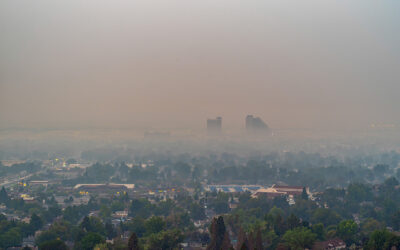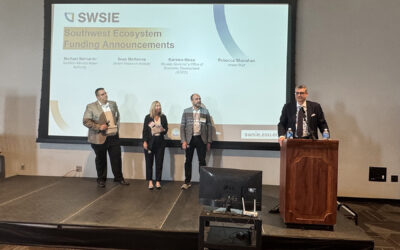LAS VEGAS – Desert Research Institute (DRI) President Dr. Kristen Averyt on Monday announced her resignation for personal reasons effective June 30, 2019. Dr. Kumud Acharya, an ecological engineer currently serving as DRI’s Interim Vice President for Research, has been designated as DRI’s Officer in Charge.
Dr. Averyt has served as president of the institution since July 2017. Nevada System of Higher Education (NSHE) Chancellor Thom Reilly, Board of Regents Chair-elect Jason Geddes, Vice Chair-elect Mark Doubrava, and Chief General Council Joe Reynolds intend to visit both DRI campuses beginning in July to listen and determine how faculty, research support staff, and DRI Foundation members would like to proceed regarding the future leadership of DRI.
“The past two years have been very rewarding, and I have enjoyed working with the NSHE team and everyone at DRI. I am proud of the work we’ve done to connect DRI’s mission with society, share the impact of the important research DRI performs across Nevada, and tell the inspiring stories of the remarkable people at DRI,” Dr. Averyt said.
“When we as scientists share our passion and knowledge with our neighbors, friends, industry leaders, and elected officials, I truly believe we can strengthen the role of science in our decision-making and across society,” she added.
Chancellor Reilly thanked Dr. Averyt for her leadership over the past two years.
“Dr. Averyt has brought a depth of scientific, academic, and administrative experience to DRI that has helped build upon the Institution’s successes and world-renowned reputation,” Chancellor Reilly said. “I want to thank her for her leadership and wish her all the best in her future pursuits.”
About Dr. Kumud Acharya
Dr. Acharya began his career at DRI in 2006 as an assistant research professor. He currently serves as Interim Vice President for Research. During his tenure, he has brought in over $18 million in external research grants and contracts and has previously served as a senior director of DRI’s former Center for Environmental Remediation and Monitoring, as Deputy Director for DHS, and as the Chief Technology Advisor for Water Start. Prior to joining DRI, Dr. Acharya served five years combined as a postdoctoral and endowed research fellow at Arizona State University and the University of Louisville. He has a bachelor’s degree in Civil Engineering, M.S. in Environmental Engineering, and a Ph.D. in Biology and Environmental Sciences.
ABOUT DRI The Desert Research Institute (DRI) is a recognized world leader in basic and applied interdisciplinary research. Committed to scientific excellence and integrity, DRI faculty, students, and staff have developed scientific knowledge and innovative technologies in research projects around the globe. Since 1959, DRI’s research has advanced scientific knowledge, supported Nevada’s diversifying economy, provided science-based educational opportunities, and informed policymakers, business leaders, and community members. With campuses in Reno and Las Vegas, DRI is one of eight institutions in the Nevada System of Higher Education.
ABOUT NSHE The Nevada System of Higher Education, comprised of two doctoral-granting universities, a state college, four comprehensive community colleges and one environmental research institute, serves the educational and job training needs of Nevada. NSHE provides educational opportunities to more than 100,000 students and is governed by the Board of Regents.
Media Contacts:
NSHE: Francis McCabe, (702) 290-8971, fmccabe@nshe.nevada.edu
DRI: Justin Broglio, (775) 673-7610 Justin.Broglio@dri.edu


